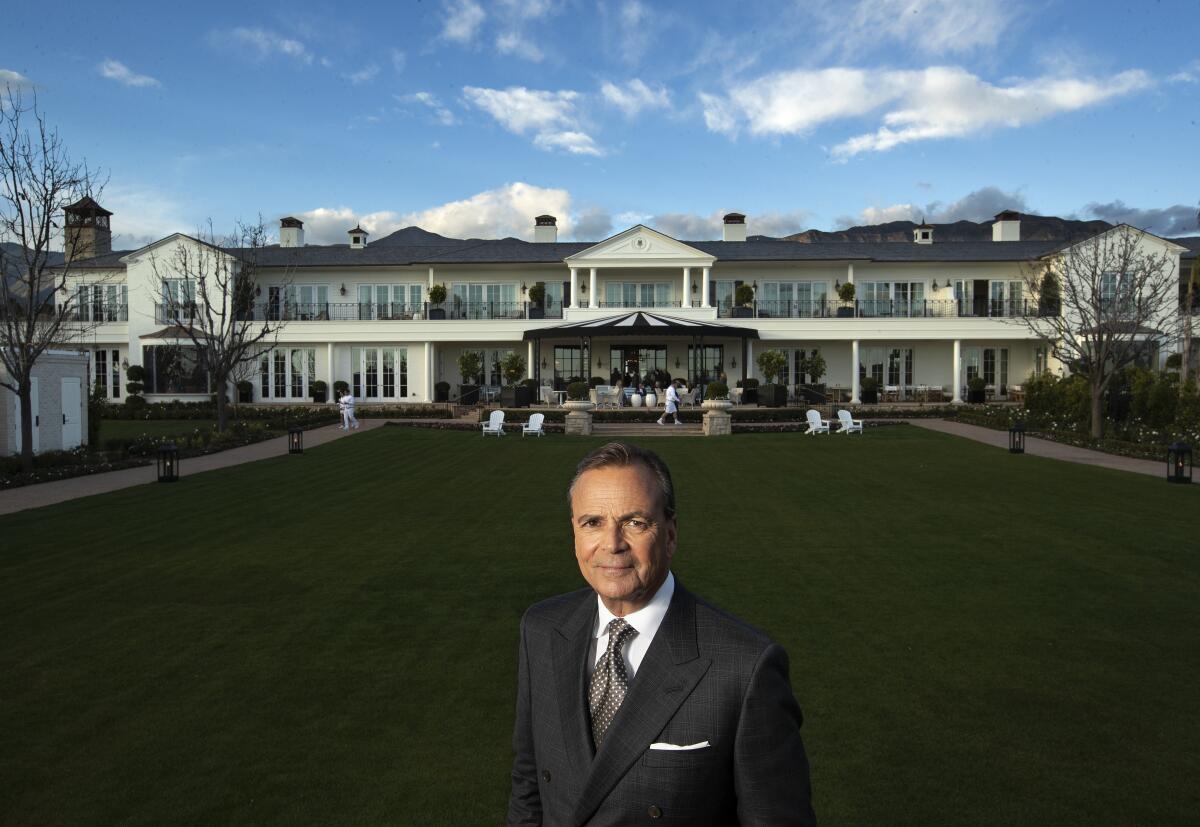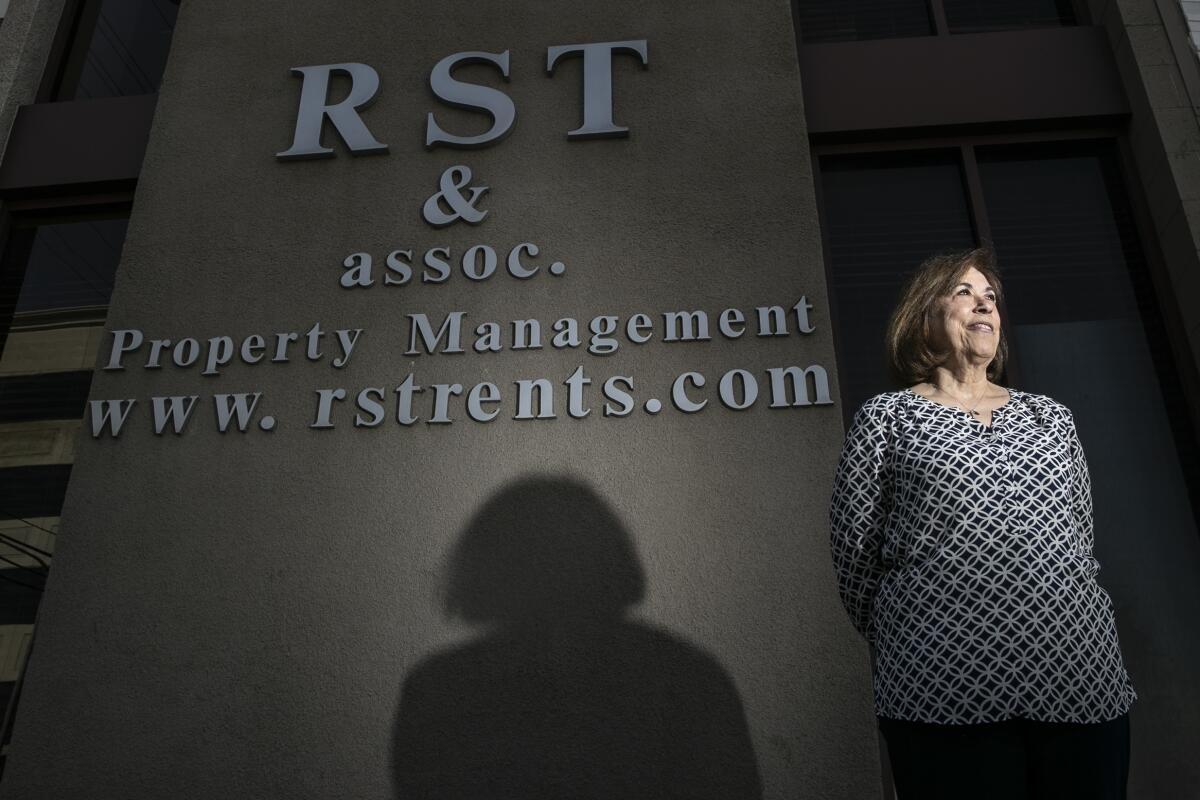Real Estate newsletter: Iconic Hearst estate hits the clearance rack
Welcome back to the Real Estate newsletter, which gives you a close-up look at a Southern California housing market that grows hotter by the week.
More than a third of Californians have received at least one COVID-19 vaccine dose, and that means more and more folks are emerging from their homes in search of new ones. That led to quick sales for actors Michael Rapaport and Bryan Cranston. The latter sold his place for nearly half a million more than he was asking.
The week’s biggest listing, however, came for a potentially less happy seller in Beverly Hills, where the famed Hearst estate surfaced at $89.75 million — a far cry from the $195-million sum once sought. That’s because the owner is deep in debt on the property, and the lender is forcing a sale.
Meanwhile, mall magnate Rick Caruso, the man behind the Grove and Americana at Brand, is getting in on the cryptocurrency craze. This week he announced that bitcoin will now be accepted for rent at his properties.
The Times also spoke with landlords across the region, many of whom are struggling to keep up with mortgage payments as delinquent rent payments and unfilled vacancies increase.
While you’re at it, visit and like our Facebook page, where you can find Real Estate stories and updates throughout the week.
Trophy property gets a huge discount
As Southern California’s red-hot real estate market sees homes selling for hundreds of thousands of dollars over the asking price, one of the region’s most legendary properties is hitting the market at a massive markdown.
The famed Hearst estate — a Mediterranean Revival-style mansion with ties to William Randolph Hearst, John F. Kennedy and “The Godfather” — relisted for $89.75 million.
A Bankruptcy Court is forcing the sale. The home’s longtime owner, attorney Leonard Ross, tried to sell the trophy property for $195 million in 2016, but has since racked up a debt of more than $50 million on the estate. As a result, he put the property into bankruptcy, and the lender, Fortress Investment Group, successfully petitioned the Bankruptcy Court to force a sale.
It’s the latest in a nearly century-long saga that has seen the estate play host to politicians, business magnates and celebrities and even appear on the silver screen, most notably in “The Godfather” and “The Bodyguard.”
Good sale for “Breaking Bad” star
Bryan Cranston didn’t need long to find a buyer for his Ventura County beach house. The “Breaking Bad” star sold the eco-friendly home for $5.45 million, accepting an offer two weeks after the property went on the market.
The sale price is more than double the $2.5 million he paid for the property in 2007 and $455,000 more than he was asking for it, records show.
Flanked by traditional beach cottages in the coastal community of Mussel Shoals, Cranston’s place is completely custom — a sleek, gray energy-efficient abode that boasts a net-zero carbon footprint. It was finished in 2013, replacing a humble single-story home that occupied the property when he bought it.
Inside, the 2,450-square-foot space combines walls of glass, polished concrete floors, custom furniture and smart-home amenities. Living spaces overlooking the ocean are powered by a mix of solar and recycling systems.
Actor wraps in Hancock Park
Amid his social media spat with NBA star Kevin Durant, actor Michael Rapaport found time to sell his Hancock Park home for $3.57 million.
Rapaport, who’s been acting since the 1990s with credits in “True Romance” and “Higher Learning,” paid $2.97 million for the modern residence in 2016 a year after it was built, records show.
Located just off Wilshire Boulevard, the box-like structure is made of smooth stucco and sits behind gates and privacy hedges. Inside, 11-foot ceilings hang over an open-concept space with wide-plank oak floors, quartz accents and walls of stone and glass.
Cryptocurrency can pay the rent

Developer Rick Caruso is known for his lavish outdoor malls, luxe seaside resort near Santa Barbara and stewardship of USC as chair of the board of trustees, writes commercial real estate reporter Roger Vincent. Now he’s planning to make a splash in cryptocurrency.
In what may be a real estate industry first, bitcoin will now be accepted for residential and commercial rent at the Grove shopping center and other properties owned by Caruso. The Los Angeles real estate magnate is planning other digital efforts such as using blockchain technology to support a new rewards program for shoppers.
One of his first tenants to pay in bitcoin may be Elon Musk, chief executive of Tesla Inc., who operates a store selling Tesla electric cars at the Americana at Brand center in Glendale.
Caruso announced Wednesday that his company had invested in bitcoin as part of a partnership with cryptocurrency exchange Gemini, founded by Tyler and Cameron Winklevoss (they famously sued former Harvard classmate Mark Zuckerberg, accusing him of stealing their idea for a social network that became Facebook).
Landlords feel effects of pandemic

As COVID-19 took root and jobs vanished, officials sought to avoid a wave of evictions, homelessness and the spread of deadly disease that could result. Governments from federal to local enacted rules allowing people whose finances have been affected by the pandemic to keep their housing if they don’t pay rent, writes housing reporter Andrew Khouri.
The policies have been a lifesaver for many during a crisis when staying home meant staying healthy, but a year later landlords say the rules are heaping an increasingly unfair burden on them.
In interviews with The Times, property owners and managers said that they understood the unprecedented nature of the crisis but that they are absorbing too much of the cost. Many said they or their clients are dipping into savings to keep properties afloat and delaying maintenance or repairs because they can’t afford them.
Some said they probably can’t or won’t hold on much longer under these circumstances.
What we’re reading
A Southern California brother and sister were charged with a real estate scheme for the ages: listing houses they didn’t own that weren’t for sale and conning would-be buyers out of more than $6 million, the AP reported.
All things considered, California’s real estate taxes aren’t that high — at least compared with the rest of the country. A recent study from WalletHub found that the Golden State’s effective real estate tax rate is 0.76%, good for 16th lowest out of the 50 states and the District of Columbia. Hawaii enjoys the lowest rate at 0.28%, and New Jersey has the highest at 2.49%.
Inside the business of entertainment
The Wide Shot brings you news, analysis and insights on everything from streaming wars to production — and what it all means for the future.
You may occasionally receive promotional content from the Los Angeles Times.




